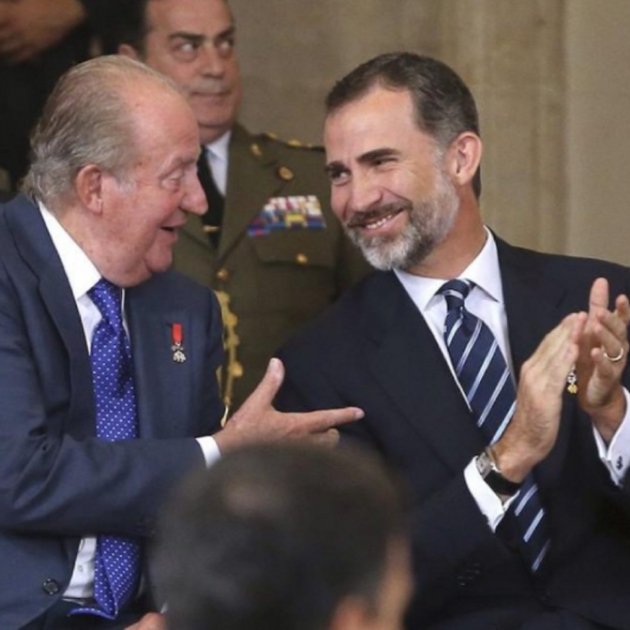All cases dropped. As was expected, former Spanish king Juan Carlos I will not face any criminal charges from his country's courts. Two years later, the public prosecutors have decided this Wednesday to close all investigations into the obscure activities and possible corruption of the emeritus king who abdicated in 2014. The reasons are various: from a lack of evidence or expiry under the statute of limitations to the protected status he held during his reign thanks to his constitutional inviolability. However, the prosecutors do recognize that there are irregularities, such as the concealment of money abroad, which was not declared to the treasury. In fact, over the last year, the ex-king has made two very large payments of back taxes. Thus, the way is paved for the return to Spain of the man who was its head of state for 39 years before he fled to the United Arab Emirates.
The shelving of the three lines of investigation open was decided through two decrees signed by Alejandro Luzón, head of Spain's prosecution unit for corruption offences. The investigation shows that, for 38 years, Juan Carlos was the beneficiary of funds apart from his official remuneration as a member of the royal household. But this largely took place before June 2nd, 2014, when he abdicated as head of state, and is therefore protected by the inviolability granted to him by the Spanish constitution. This is what will prevent, for example, him from being prosecuted for the donation of 65 million euros from Saudi Arabia, which he hid in Switzerland through the Panamanian foundation Lucum.
With regard to these funds, the Spanish prosecutors are clear that their real owner was Juan Carlos I and have identified amounts which defrauded income tax obligations between 2008 to 2012 that "amply" exceed the quantity of 120,000 euros that the Penal Code sets as the "crime threshold". However, possible criminal liability in the period 2008 to 2011 is already wiped out due to the statute of time limitations. For those relating to 2012, the prosecutors point out, "he would not be liable for criminal prosecution either because he was protected by inviolability."
Beyond the tax offences, the prosecutors point out that the investigation has not been able to establish, "even in an indicative way", any link between this income and the award to a Spanish consortium of the Saudi high-speed train project in Mecca or, arising therefrom, the payment of a commission. In fact, it is speculated that "this was a gift that could have been received by the figure of head of state which Juan Carlos held in 2008" and, therefore, classifiable as an offence of bribery. But this possible crime would also have "clearly expired" under the statute of limitations. As for a possible money laundering offence, this would also have been impossible to prosecute to his royal inviolability.
Money transferred from an entrepreneur
A second line of investigation in the case concerned money transfers made between 2016 and 2019 by the British-Mexican businessman Allen Sanginés-Krause. The beneficiary was Juan Carlos de Borbon and the total amount involved was 516,606.32 euros. Here, the prosecutors point out that "there is no evidence of any service rendered for the transfers that were made". They were subject to inheritance tax and donations and the emeritus regularized them with a declaration to the tax agency on December 9th, 2020, paying 556,412.5 euros, plus surcharges and interest. In this way, the chapter would be closed.
Zagatka Foundation
A third line of investigation focused on the expenses and travels of Juan Carlos I paid by the Zagatka Foundation, which was managed by his cousin, Alvaro of Orleans. This spending was after June 19th, 2014 - the king's abdication date - and were therefore no longer protected by his inviolability. According to the prosecution, this foundation "paid large sums for the use of private jets and accommodation services" to the emeritus and his relatives. However, he carried out a second fiscal regularization in February 2021, "without prior request to do so from the tax administration", for a total amount of 4.41 million euros. A tax regularization that "met the objective requirement."
